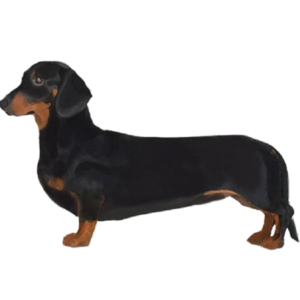All our dogs that we breed are DNA tested, currently using the company Orivet Genetic Pet Care. We choose to use this company as they are Australian, very helpful and always researching to provide the most updated tests and services.
We have recently found out that the cream gene is not tested for in dachshunds (it is the chinchilla or C locus, so currently there is no testing in the world that can determine if a dog is a true cream or carries the cream gene). We are happy to provide the DNA tests for your puppies parents when you purchase a puppy from us, with all their other paperwork.
Dachshund – Full Breed Profile
Includes the following:
DISEASES:
⦁ Cone-Rod Dystrophy I – PRA (cord I)
⦁ Neuronal Ceroid Lipofuscinosis 1 (Dachshund Type)
⦁ Osteogenesis Imperfecta SERPINH1 (Dachshund Type)
⦁ Sanfilippo Syndrome Type A / Mucopolysaccharidosis IIIA (Dachshund Type)
TRAITS:
⦁ A Locus (Fawn/Sable;Tri/Tan Points)
⦁ Brown Coat Colour Profile
⦁ Coat Colour Dilution Alopecia
⦁ D (Dilute) Locus
⦁ E Locus – (Cream/Red/Yellow)
⦁ K Locus (Dominant Black)
⦁ Long Hair Gene (Canine C95F)
Below is an explanation of the results that can be obtained through DNA testing.
NEGATIVE / CLEAR [NO VARIANT DETECTED]
Most of our dogs fit into this category.
No presence of the variant (mutation) has been detected. The animal is clear of the disease and will not pass on any disease-causing
CARRIER [ONE COPY OF THE VARIANT DETECTED]
We have 2 girls that are carriers. As our males are all clear, their puppies can not inherit the disease from the parents. At worst a litter could have 50% of offspring which are carriers, (never exhibiting the disease) and 50% of the offspring will be clear.This means no puppy we breed can inherit this disease from their parents. If you would like to discuss this with us further please do.
This is also referred to as HETEROZYGOUS. One copy of the normal gene and copy of the affected (mutant) gene has been detected. The animal will not exhibit disease symptoms or develop the disease. Consideration needs to be taken if breeding this animal – if breeding with another carrier or affected or unknown then it may produce an affected offspring.
POSITIVE AT RISK [TWO COPIES OF THE VARIANT DETECTED]
None of our dogs are positive. We would not breed from a dog that is positive.
Two copies of the disease gene variant (mutation) have been detected also referred to as HOMOZYGOUS for the variant. The animal may show symptoms (affected) associated with the disease. Appropriate treatment should be pursued by consulting a Veterinarian.
POSITIVE HETEROZYGOUS [ONE COPY OF THE DOMINANT VARIANT DETECTED]
None of our dogs are positive. We would not breed from a dog that is positive. Also referred to as POSITIVE ONE COPY or POSITIVE HETEROZYGOUS. This result is associated with a disease that has a dominant mode of inheritance. One copy of the normal gene (wild type) and affected (mutant) gene is present. Appropriate treatment should be pursued by consulting a Veterinarian. This result can still be used to produce a clear offspring.
POSITIVE HOMOZYGOUS [TWO COPIES OF THE DOMINANT VARIANT DETECTED]
None of our dogs are positive. We would not breed from a dog that is positive, Also referred to as POSITIVE HOMOZYGOUS. Two copies of the disease gene variant (mutant) have been detected and the animal may show symptoms associated with the disease.
Please Note: This disease has dominant mode of inheritance so if mated to a clear animal ALL offspring with be AFFECTED – HETEROZYGOUS ONE COPY.
